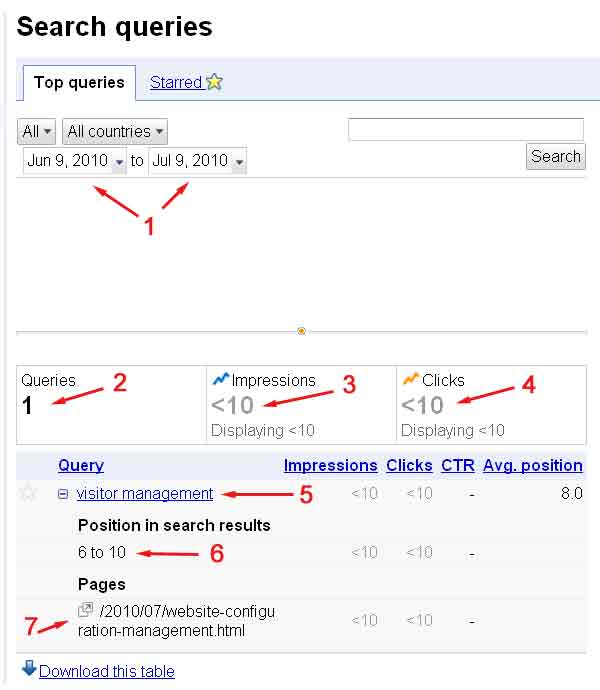The reason for this limited amount of data is the newness of the site registration with Google Webmaster Tools on July 6th. See prior post. Since there is only one day of data available, the date range pointed to by number 1 is fixed in this example.
Presumably, once more data is available, the date range can be user selected. The most important parts of this data set are:
- Date range
- Total number of search strings that Google considered relevant enough to return, during the date range.
- Total number of times the blog appeared in Google search results, during the date range. This is called "impressions" because the Google user would have actually had the opportunity to see the site's title and blurb whether or not the site link was clicked and visited.
- Total number of times the site link was clicked and visited from Google search results page.
- The specific search string(s) that Google responded to. In this example, there was only one, "visitor management."
- The high-low search position range that Google served as a result for this blog. Number one is the highest search position, appearing at the top of the list on a Google search results page. The are generally never more than ten organic search results (not including paid search results) per page with Google, and sometimes less.
- The specific page that was considered relevant enough to serve up as a search result.
Screenshot 1 - 20100715-01






No comments:
Post a Comment